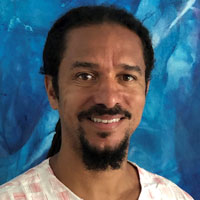PROJECT TITLE: The Cellular and Molecular Basis of COVID-19 Effects in the Retina and Brain
ABSTRACT: The novel coronavirus disease 2019 (COVID-19) is caused by the severe acute respiratory syndrome coronavirus 2 (SARS-CoV-2) and is an absolute priority of the global health agenda. Although the predominant clinical presentation is respiratory disease, it is now clear that COVID-19 is a systemic disease, and neurological manifestations and retinal findings have been described. While most patients recover from COVID-19 within weeks, some experience complications that can last months after recovery. This condition, known as “long COVID”, is characterized by a variety of new or returning health problems, and 80% of infected patients may develop one or more long-term symptoms. In humans, the retina and other tissues of the CNS (central nervous system) are affected by COVID-19 during the symptomatic phase and after recovery. In this unprecedented scenario, animal models that mirror human disease caused by SARS-CoV-2 are crucial for medical countermeasures and for a better comprehension of the central nervous system (CNS) pathogenesis. Here, we plan to take advantage of a unique transgenic mouse model to better understand the consequences of COVID-19 to neural tissues of the CNS. In particular, we plan to study the acute effects of SARS-CoV-2 infection to the retina and its long-term consequences – following recovery from COVID-19 – to the specific tissues of the CNS, including the retina.
Rodrigo Martins, PhD is Associate Professor of the Institute of Biomedical Sciences, Federal University of Rio de Janeiro (UFRJ) and holds a Degree in Biological Sciences from UFRJ and MSc in Biophysics and Doctor of Science (2004) by IBCCF UFRJ. His postdoctoral training was in Developmental Biology and Tumorigenesis in the CNS at St Jude Children’s Research Hospital (2005-2008). Dr. Martins’ main scientific interests are molecular mechanisms of cell cycle control and DNA damage signaling during CNS development and degeneration.


